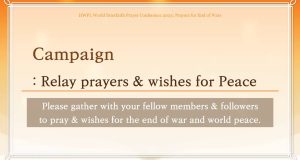
A seven-member Supreme Court panel presided over by Chief Justice Sophia Akuffo has by unanimous decision declared that the 48-hour rule on the power to arrest, restrict and detain suspects in Ghana is applicable on all holidays and by extension all seven days of the week.
The decision of the Court which was read by the Chief Justice Sophia Akuffo, as her Valedictory (BIDDING FAREWELL) Judgement is as a result of an application invoking the original Jurisdiction of the Supreme Court for an interpretation of article 14 clause 3 of the 1992 Constitution which states that “a person who is arrested, restricted or detained (a) for the purpose of bringing him before a court in execution of an order of a court; or (b) upon reasonable suspicion of his having committed or being about to commit a criminal offence under the laws of Ghana, and who is not released, shall be brought before a court within forty-eight hours after the arrest, restriction or detention.
Essentially the Applicant in the matter, Martin Kpebu, who instituted the action before the Supreme Court sort eight (8) relief from the Supreme Court. Amongst them was “a declaration that on a true and proper interpretation of article 14(3) of the Constitution (1992) a Saturday, a Sunday, a public holiday, anytime during a civil unrest and any other day that the courts in Ghana cannot sit (e.g. during strike by judicial service staff or during a strike by any other stakeholder that will prevent the court from sitting) would be counted in reckoning the 48 hours within which a person arrested or detained on suspicion of committing a crime and not released must be brought before a court under article 14 (3) of the Constitution of Ghana (1992)”.
The second relief Mr. Kpebu wanted from the Apex Court was “a declaration that on a true and proper interpretation of article 14(3) of the Constitution (1992), section 4 of the Public Holidays Act (Act 601) is inconsistent with article 14 (3) and is void to the extent of that inconsistency only”. Thirdly, “a declaration that the Government of Ghana is in breach of article 14(3) of the Constitution of the Republic (1992) for not taking steps to ensure that some courts are opened on Saturdays, Sundays and public holidays for arrestees whose 48 hours of incarceration expire on the aforementioned days are brought to court for the court to determine the validity of their incarceration and to enable the arrestee to apply for bail”.
Furthermore, the applicant was seeking “a declaration that, on a true and proper interpretation of article 14(3) of the Constitution (1992) certain courts must be made to sit on Saturdays, Sundays or any other day that the courts are ordinarily unable to sit due to strikes, civil unrest and other circumstances not contemplated, in order for the court to hear applications for bail” and “a declaration that where a court is scheduled to sit on or seized with a criminal matter concerning an arrestees who is being brought pursuant to article 14 (3) of the Constitution is unable to sit in open court under circumstances of strike or civil unrest an arrestee in custody has a right to apply to a judge who has jurisdiction to hear that kind of case for bail or for his release depending on the classification of the offence. The application may be made in chambers or any other place the judge may be found and should not be subject to filing a motion in the court, But the motion may be filed with the judge”.
The sixth relief sort by the applicant was “a declaration that on a true and proper interpretation of article 14 (4) a court seized with a criminal case must hear the substantive case against a suspect or accused who is not admitted to bail ahead of an accused who have been admitted to bail”.
It was the argument of the applicant that “where a person is arrested on a Friday which is the case in many instances the 48 hours are likely to expire on a Sunday, a day on which courts do not sit in Ghana. Such a person ought to be given access to appear before a judge on that Sunday”.
He further opined in his Statement of case that “there are also instances in which a suspect is arrested on a Thursday and as such the 48 hours after his arrest fall on a Saturday on which the courts do not ordinarily sit (except a few courts to deal with social security payment cases-SSNIT cases).
We also have instances where a person may be arrested on the 24th of December and in that case the 48 hours is likely to expire on the 26th of December which is also a public holiday. My Lords, this year (2016) is even more interesting. The festive season for Christians fall on a Sunday and Monday. Usually, 25th December is observed as a public holiday. Consequently, when 25th December falls on a Sunday the observation of the holiday may be moved to Tuesday and this would mean four consecutive days without official duties. Should a person get arrested on Friday, the 23rd December 2016, he or she would remain in custody till Wednesday, the 28th December 2016 and this would mean spending four days in custody without judicial sanction of staying in custody beyond the 48 hours”.
The Supreme Court in essence ruled that Section 4 of the Public holiday Act 2001, (Act 601) entitled “Prohibition of Business on Public Holidays” , and states as follows (1) “Subject to sections 1, 3 and 6 and subsection (2) of this section, a person shall not open a shop for the purposes of selling or trading or engage in a business on a public holiday” is inconsistent with section 14 (3) of the 1992 Constitution as far as the liberties of people are concerned.
The panel which included Justice Julius Ansah, Justice Anin Yeboah, Justice Paul Baffoe-Bonnie, Justice Nasiru Gbadegbe, Justice Alfred Anthony Benin and Justice Nii Ashie Kotey, gave consequential orders directed at the Chief Justice, the Inspector General of Police, Registrars of the various Courts to ensure th
 Naagyei 90.3 Fm Agyapa
Naagyei 90.3 Fm Agyapa




